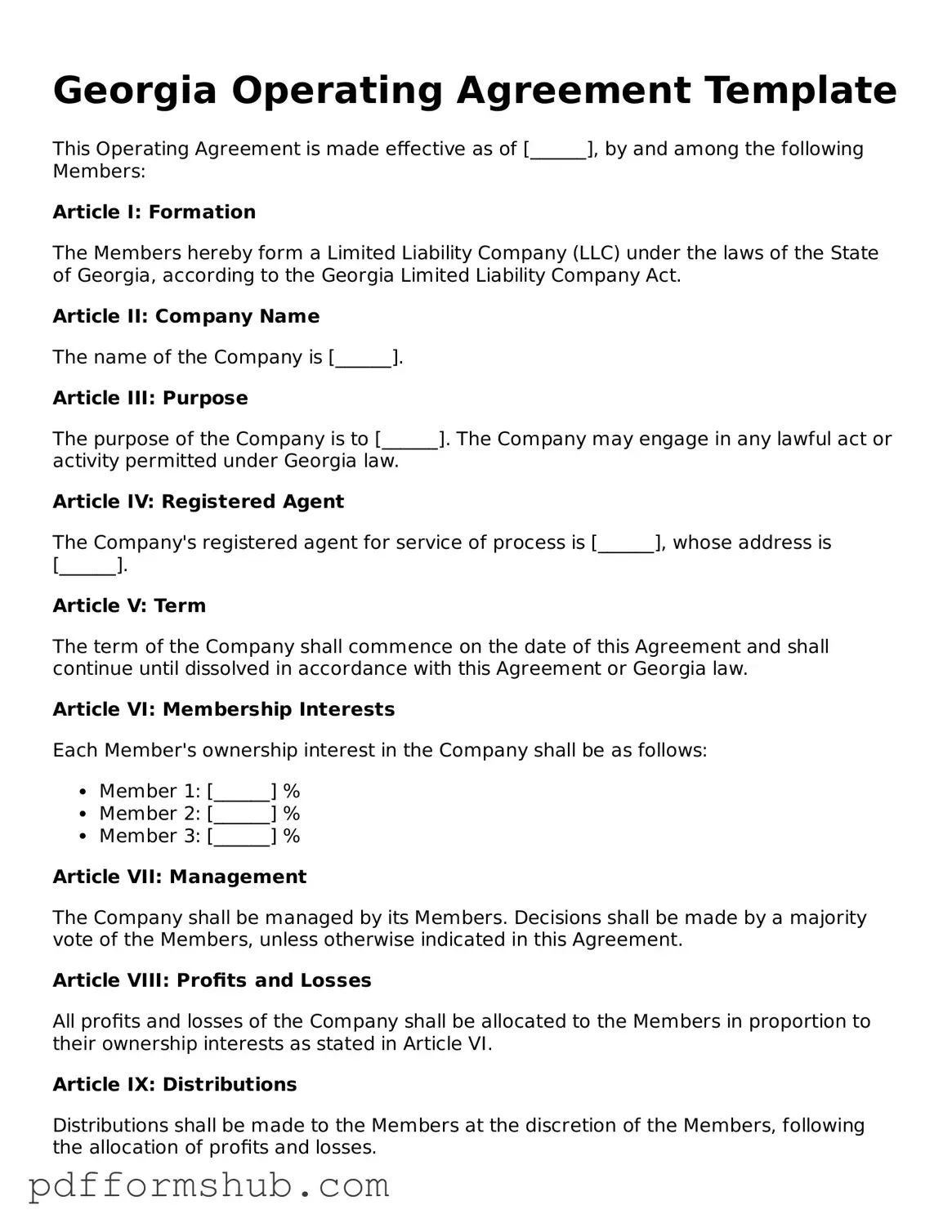Attorney-Verified Operating Agreement Form for Georgia State
The Georgia Operating Agreement form is a crucial document for LLCs, outlining the management structure and operational procedures of the business. This agreement not only clarifies the roles of members but also helps prevent disputes by establishing clear guidelines. To ensure your LLC runs smoothly, consider filling out this essential form by clicking the button below.
Customize Form

Attorney-Verified Operating Agreement Form for Georgia State
Customize Form

Customize Form
or
Free PDF Form
Short deadline? Complete this form now
Complete Operating Agreement online without printing hassles.